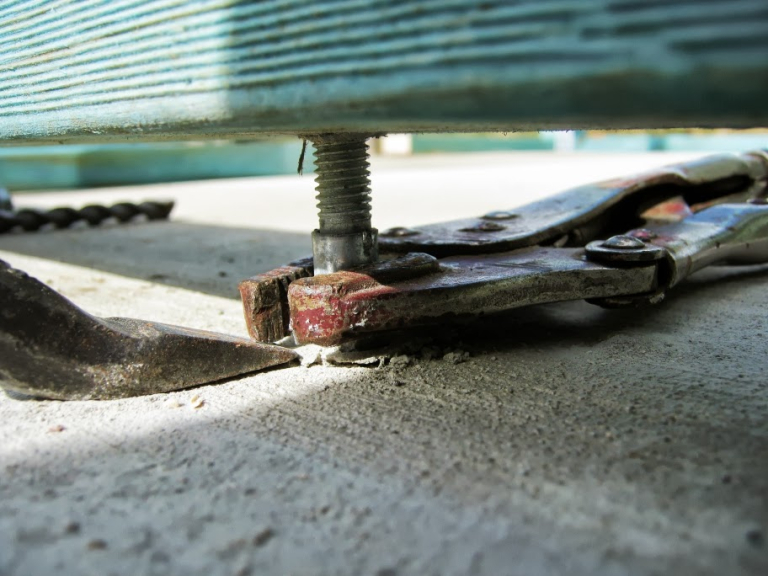Decoding Air Conditioning Compressors: The Cooling Maestros
The symphony of a well-chilled room on a scorching day is orchestrated by a silent hero within your air conditioning unit – the air conditioning compressor. You might not see it, but this component is the unsung champion, ensuring that cool breeze dances through your space. Today, we embark on a journey to demystify the inner workings of this critical HVAC player.
Understanding the Basics of an Air Conditioning Compressor
Definition and Functionality
In the realm of HVAC, the air conditioning compressor is like the heart, tirelessly pumping refrigerant to keep the system alive and kicking. Simply put, it’s a master of compression, squeezing the life out of the refrigerant to transform it from a lazy gas to an energetic liquid.
Types of Air Conditioning Compressors
Much like choosing a flavor of ice cream, compressors come in different types, each bringing its own unique twist to the cooling saga.
- Reciprocating Compressors: These are the traditionalists, moving back and forth like a piston in an engine. They are robust and reliable, making them a popular choice for many cooling setups.
- Scroll Compressors: Imagine two interlocking scrolls doing a tango – that’s the dance of the scroll compressor. It’s efficient and quieter than its reciprocating counterpart, adding a touch of sophistication to your cooling experience.
- Rotary Compressors: If reciprocating compressors are the classical musicians, rotary compressors are the jazz artists. They spin around, embracing a smooth, continuous motion. This type is often found in smaller air conditioning units and is known for its compact design.
- Centrifugal Compressors: Picture a whirlwind romance, quite literally. Centrifugal compressors spin the refrigerant in a centrifuge, creating a high-velocity flow. They are the powerhouse for large industrial setups, pushing the boundaries of cooling capability.
As you can see, the compressor world is a diverse ensemble, each type bringing its own flair to the cooling symphony.
The Inner Workings: How Does an Air Conditioning Compressor Operate?
Compression Cycle
Now that we’ve introduced the compressor cast, let’s pull back the curtain and witness the mesmerizing dance of the compression cycle. It’s like a choreographed routine where the refrigerant takes center stage, transitioning between gas and liquid forms.
The show begins when the refrigerant, in a gaseous state, enters the compressor. This is the cue for the compressor to flex its muscles. Picture it like a weightlifting champion, but instead of dumbbells, it’s lifting the pressure of the refrigerant. As the compressor works its magic, the refrigerant gets squeezed, elevating its pressure and temperature.
What’s the significance of this high-pressure performance, you ask? Well, it’s the catalyst for the refrigerant’s transformation into a liquid state. This liquid gold then continues its journey, ready to cool your space with unrivaled efficiency.
Refrigerant Flow
Now that the refrigerant has hit the liquid catwalk, it’s time to talk about its graceful flow within the compressor. It’s not a chaotic free-for-all; there’s a method to this liquid madness.
The compressor channels the high-pressure liquid to the condenser, where the heat is released into the outside air. Think of it as the refrigerant taking a breather, shedding the excess heat before it returns to the compressor for another exhilarating cycle.
Understanding this ballet of pressure changes and refrigerant flow is like deciphering the secret language of cool comfort. The compressor, in its silent elegance, orchestrates this dance, ensuring that you stay blissfully oblivious to the technical drama behind the scenes.
Factors Influencing Compressor Efficiency
Size and Capacity
Imagine trying to fit a square peg into a round hole – not the best fit, right? The same principle applies to air conditioning compressors. Size matters, and matching the compressor’s capacity to your cooling needs is like finding the perfect dance partner.
A compressor too small for the task will huff and puff, struggling to keep up with the cooling demands. On the other hand, an oversized compressor might lead to a case of overkill, causing inefficiency and potential issues down the line. It’s all about that Goldilocks zone – just right for optimal performance.
Energy Efficiency
In the quest for coolness, efficiency is the unsung hero. Energy-efficient compressors not only keep your utility bills in check but also contribute to a greener planet. When shopping for a cooling companion, keep an eye out for SEER (Seasonal Energy Efficiency Ratio) and EER (Energy Efficiency Ratio) ratings. The higher, the better – it’s like getting a VIP pass to the energy-saving party.
Maintenance and Lifespan
Even the finest performers need a tune-up now and then, and your air conditioning compressor is no exception. Regular maintenance is the key to keeping it in top-notch condition and extending its lifespan.
Picture it like a spa day for your HVAC system – cleaning coils, checking refrigerant levels, and tightening loose ends. Neglecting these rituals might lead to premature wear and tear, turning your compressor from a smooth operator to a potential headache. Need help with your AC? Check out our Air Conditioning Melbourne page.

Common Issues and Troubleshooting Tips
Compressor Overheating
Even the coolest performers can feel the heat, and your compressor is no exception. Overheating can be caused by a variety of factors, from poor ventilation to an overworked system. To keep your compressor from breaking into a sweat, ensure proper clearance around the unit. Think of it as giving your compressor some breathing room – a little space can go a long way in preventing an overheating encore.
Refrigerant Leaks
A leak in the refrigerant department is like a slow puncture in a tire – it might seem small, but it can lead to a significant performance dip. If you suspect a refrigerant leak, keep an eye out for signs like reduced cooling efficiency or hissing sounds. Detecting and fixing leaks promptly not only preserves the refrigerant but also ensures your compressor operates at its full potential.
Unusual Noises
Your compressor might not sing a lullaby, but it shouldn’t be belting out strange tunes either. Unusual noises, from clanking to screeching, can be indicators of underlying issues. Loose components, refrigerant troubles, or wear and tear might be the culprits. If your compressor is sounding more like a rock concert than a symphony, it’s time for a professional solo – call in the experts to diagnose and remedy the situation.
Advancements in Compressor Technology
Variable Speed Compressors
In the ever-evolving world of air conditioning, variable speed compressors are the trendsetters, the cool kids on the block. Unlike their fixed-speed counterparts, these compressors have the ability to adjust their speed based on the cooling needs. It’s like having a dimmer switch for your cooling – no more abrupt starts and stops. This not only enhances energy efficiency but also delivers a smoother and more precise control over your indoor climate. It’s the epitome of sophistication in the HVAC world.
Smart Compressors
Gone are the days when your air conditioning system was just a bunch of mechanical components doing their thing. Enter the era of smart compressors, where your cooling system becomes an intelligent companion. These compressors are equipped with smart features that allow for remote control, scheduling, and even diagnostics.
Imagine being able to adjust your home’s temperature from the palm of your hand or receiving notifications about potential issues before they turn into major headaches. Smart compressors, often integrated with IoT (Internet of Things) technology, bring a new level of convenience and control to your cooling experience. It’s like having a personal assistant for your HVAC needs, ensuring that your comfort is always a priority.
As we take our final bow in this exploration of air conditioning compressors, it’s evident that these technological advancements are not just bells and whistles; they’re transformative elements shaping the future of cooling comfort.
In the grand theater of air conditioning, the compressor is the lead actor, the star of the show. From its humble beginnings compressing refrigerant to the latest innovations in variable speed and smart technologies, the journey has been nothing short of extraordinary. For more information visit: https://www.energy.vic.gov.au/households/victorian-energy-upgrades-for-households/heating-and-cooling
We hope this behind-the-scenes glimpse into the world of air conditioning compressors has been enlightening. The next time you bask in the cool embrace of your air-conditioned haven, remember to tip your imaginary hat to the real hero – the air conditioning compressor.
FAQs:
How often should I service my air conditioning compressor?
Regular annual maintenance is recommended to ensure optimal performance and extend the compressor's lifespan.
Can I use a larger compressor for better cooling?
It's essential to match the compressor size to your specific cooling needs to achieve efficiency; using a larger compressor may lead to issues.
What causes a compressor to make loud noises?
Unusual noises may result from issues like loose components, refrigerant problems, or compressor wear; professional inspection is advised.
Are variable speed compressors worth the investment?
Yes, variable speed compressors offer enhanced energy efficiency and better comfort control, making them a worthwhile investment in the long run.
Can I replace a compressor on my own?
Compressor replacement is a complex task best left to professionals; DIY attempts may lead to further damage and reduced system efficiency.







